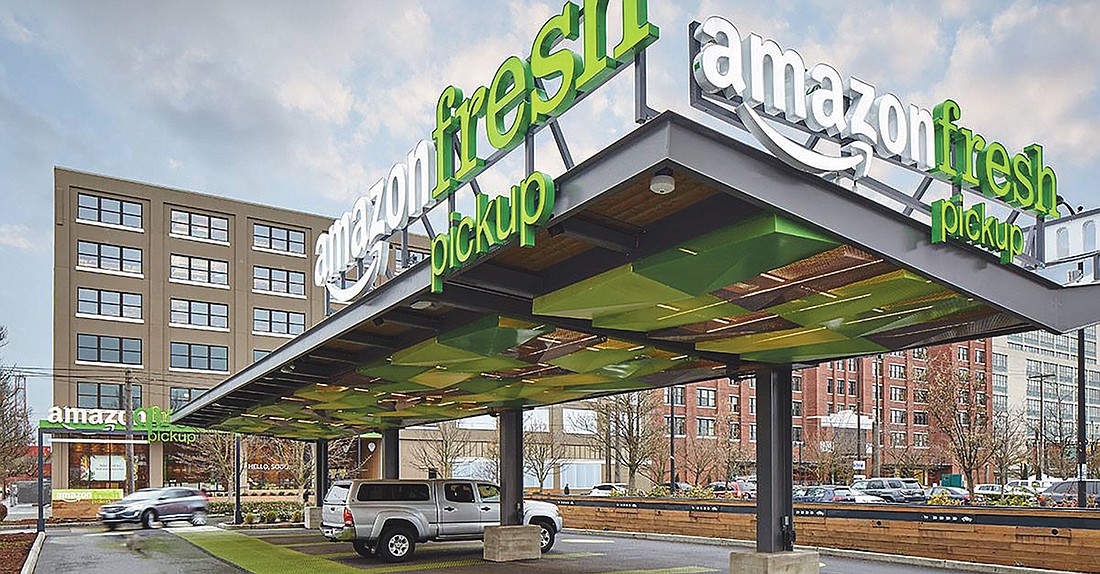
After starting with books and then changing the way people shop for other commonly purchased items, Amazon.com is taking on the product category that consumers have to buy on a regular basis: fresh food.
It’s the “final frontier of e-commerce,” said April Lane, the online retailer’s category leader for perishables, private labels and pickup.
She was the guest presenter March 8 at the Davis College of Business Leadership Forum at Jacksonville University.
“I’m here to tell you how Amazon thinks about groceries,” she said.
The company is approaching perishable foods the same way it looks at selling other products: by making buying from Amazon a consumer’s first choice.
“We want to be Earth’s most consumer-centric company–low prices, a vast selection and easy to shop,” Lane said.
After working for retailers including Nike and Victoria’s Secret, Lane joined Amazon nine years ago. For the past six years, she has focused on selling food online.
The process begins with making consumers aware of their choices and for that, Amazon uses the formats that work for other products, such as toothpaste and paper towels.
“We can show you 24 yogurts on a page, but consumers want to be more specific, like their favorite flavor or brand,” Lane said.
Connecting customers with the items they have just purchased is the challenge with perishable products.
Lane said AmazonFresh, the model that offers same-day delivery of fresh food, began in Seattle in 2007. It has expanded to more than 30 cities.
Lane said one of Amazon’s fast-growing options is “AmazonFresh Pickup.”
Customers place their order online and then drive to a location such as a Whole Foods Market, a company purchased by Amazon in 2017. When they arrive, their order is delivered to their vehicle.
“You don’t have to get out of your car to get your groceries,” said Lane.
The company also is growing its “Amazon Go” concept in dense urban areas.
Lane said “eat now foods” such as beverages, snacks and sandwiches, are stocked in small stores where customers select what they want, scan it and pay for it with an app on their mobile device and then walk out the door.
Amazon is working on evolving online food shopping by analyzing its customers and their habits. The system can learn which items a customer purchases most often, suggest recipes for the items purchased and even provide cooking instructions.
“That’s popular with our younger consumers who may not cook like their parents did,” said Lane.
Another growing market segment is foods that are sliced and chopped or marinated.
Lane said Amazon will continue to study the markets and adapt how it sells and delivers nonperishables and fresh foods.
“We’re viewing it as the future,” she said.